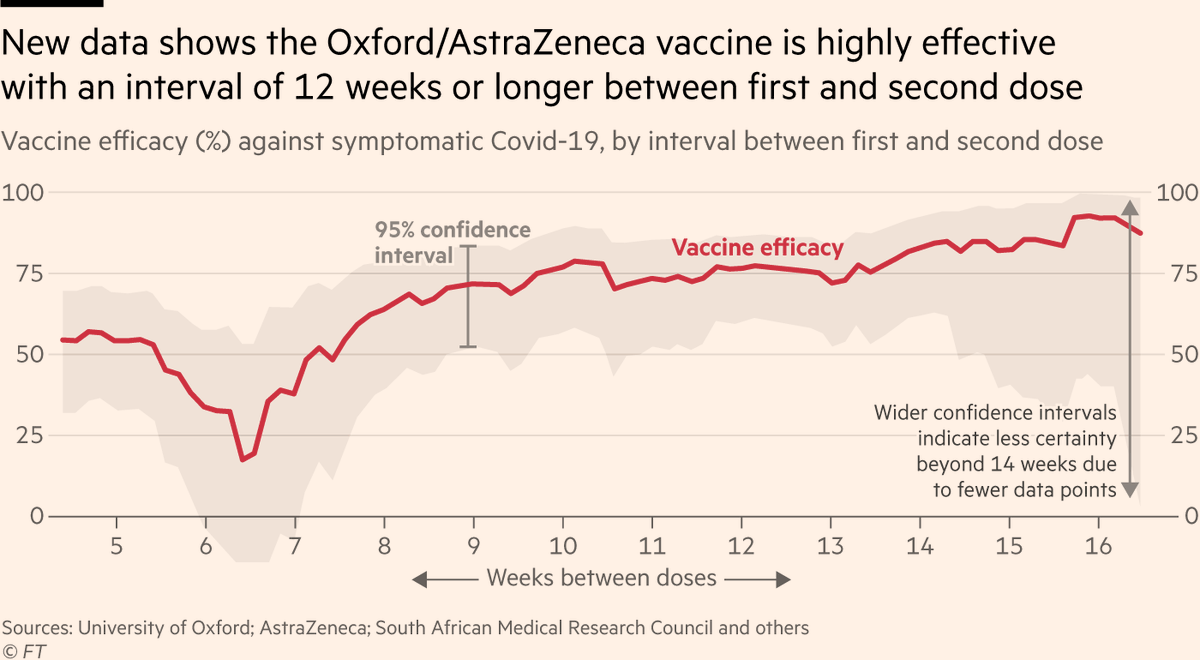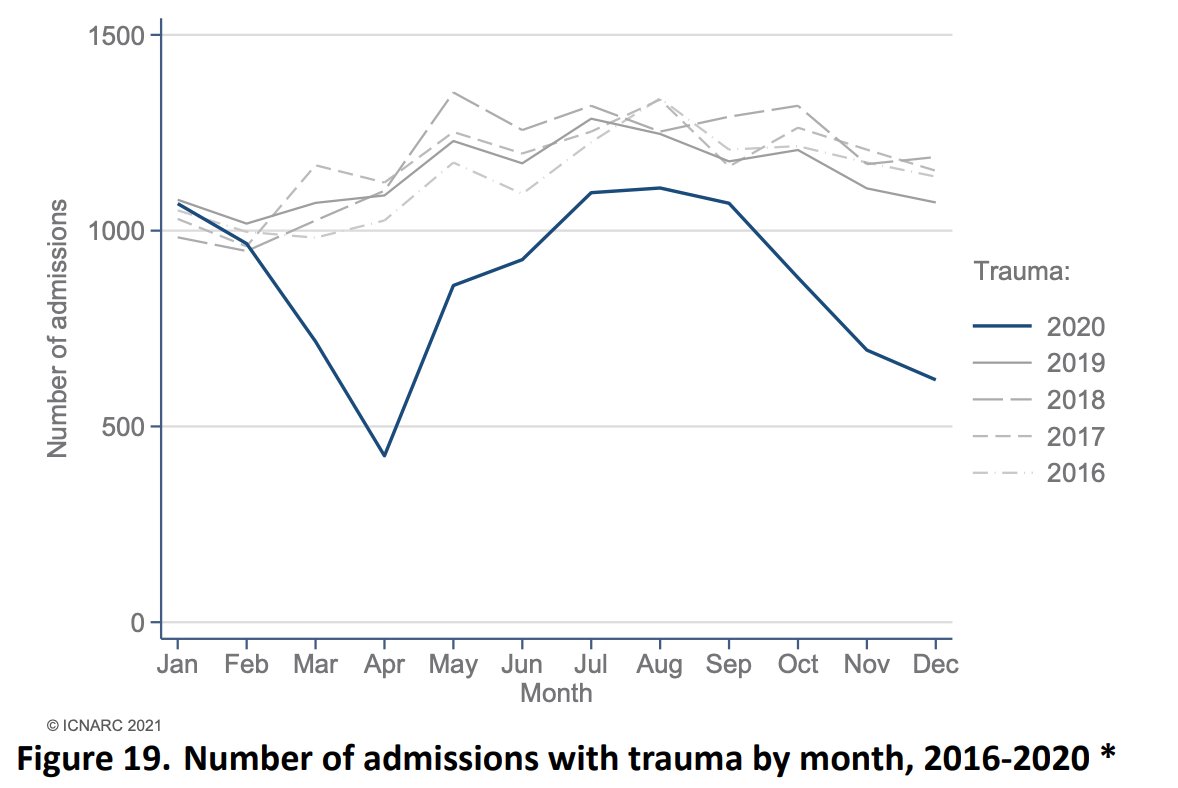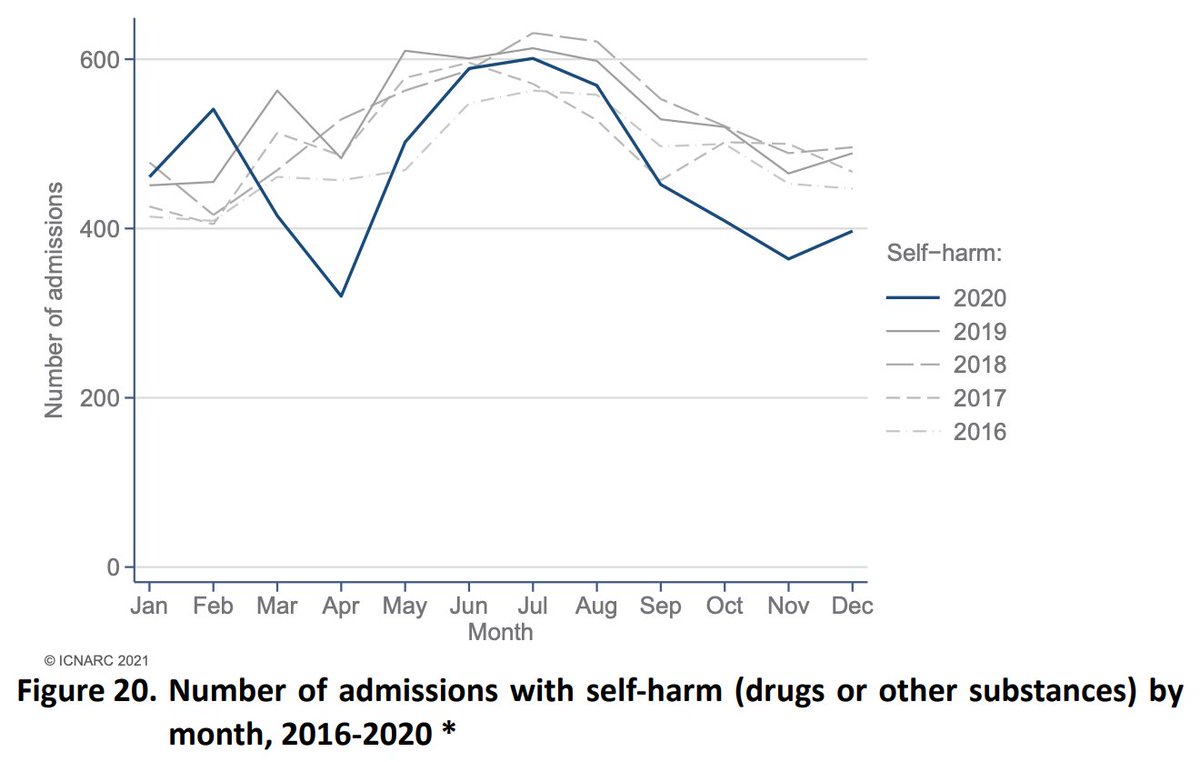
NEW:
Cases & hospital admissions in Israel are falling steeply among vaccinated age groups, in the first clear sign worldwide that Covid-19 jabs are preventing illness 💉🎉
Rates are falling much more slowly (if at all) among under-vaccinated groups.
ft.com/content/0cdc85…
Cases & hospital admissions in Israel are falling steeply among vaccinated age groups, in the first clear sign worldwide that Covid-19 jabs are preventing illness 💉🎉
Rates are falling much more slowly (if at all) among under-vaccinated groups.
ft.com/content/0cdc85…

We’ve seen very promising data from trials, but this is first evidence 'in the wild' that vaccines are working as hoped.
Data are from @segal_eran’s team at @weizmannscience, who compared case & hospital rates in 60+ age group (heavily vaccinated) and under-60s (less vaccinated)
Data are from @segal_eran’s team at @weizmannscience, who compared case & hospital rates in 60+ age group (heavily vaccinated) and under-60s (less vaccinated)
That age group split is especially useful because of how Israel has phased its vaccination roll-out.
Between Dec 20 And Feb 2, vaccination rates rocketed from zero to 80% at age 60+. Rollout among under-60s began later and is climbing more slowly.
Between Dec 20 And Feb 2, vaccination rates rocketed from zero to 80% at age 60+. Rollout among under-60s began later and is climbing more slowly.

The researchers were very careful:
Could steep fall in cases among 60+ just be due to the lockdown that began in early January? What if older people are just more likely to social distance etc?
So they compared current patterns to last lockdown. This time is clearly different.
Could steep fall in cases among 60+ just be due to the lockdown that began in early January? What if older people are just more likely to social distance etc?
So they compared current patterns to last lockdown. This time is clearly different.

They also compared patterns in cities that rolled out the vaccine early & quickly, to those that began later & ramped up slowly.
Again the results clearly point to a real vaccine effect: the divergence in rates of illness began much earlier where vaccination began earlier.
Again the results clearly point to a real vaccine effect: the divergence in rates of illness began much earlier where vaccination began earlier.

All eyes are now on UK & US — the two major countries closest behind Israel in vaccine roll-out — especially considering UK’s prioritisation of first doses and its high prevalence of the B.1.1.7 variant.
We should start seeing some indication in the UK in the next week or two 🤞
We should start seeing some indication in the UK in the next week or two 🤞
As @VirusesImmunity told me, the Israeli data certainly give us a lot of hope, and underscore just how impressive the roll-out has been there.
Full story here, including more detailed data on real-world efficacy in different age groups ft.com/content/0cdc85…
Full story here, including more detailed data on real-world efficacy in different age groups ft.com/content/0cdc85…

• • •
Missing some Tweet in this thread? You can try to
force a refresh














